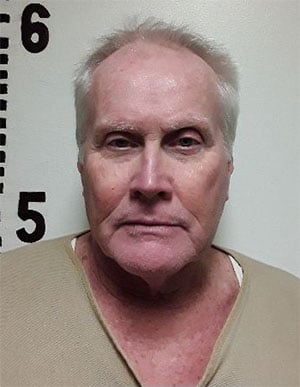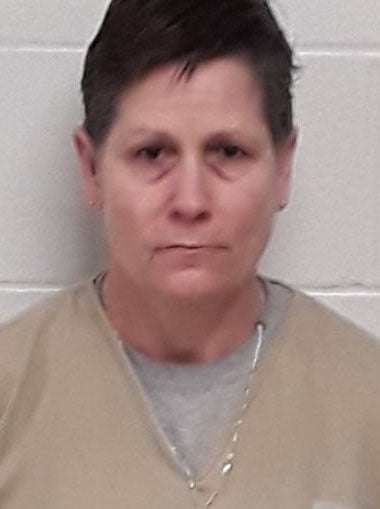Editor’s Note: Second of four-part series on Kentucky’s Parole Board
By R.G. Dunlop
Special to NKyTribune
Sentences of life without parole and others requiring decades of incarceration pose serious challenges not only for inmates but also for the state. These sentences are often imposed and upheld notwithstanding evidence that older inmates are far less likely than their younger counterparts to commit other crimes if they are released from prison. And older inmates cost the state substantial additional money the longer they are kept in custody.
According to a July 2021 report by the U.S. Department of Justice, 81 percent of inmates ages 24 and younger were rearrested within five years of their release. The figure dropped to 61 percent for inmates 40 and older, and to 26 percent among inmates who were 65 and older.

And an August 2023 report by Emily Widra of the Prison Policy Initiative reached a similar conclusion: “Formerly incarcerated older inmates are among the least likely to be rearrested, re-convicted and reincarcerated. The older someone is the less likely they are to be arrested following release from prison.”
Widra also found that 30 percent of the inmates serving life sentences nationwide were at least 55 years old, “with more than 61,400 older adults sentenced to die in prison.”
As a result, Widra concluded, prisons are “gearing up to become nursing homes, but without the proper trained staff and adequate financial support. It doesn’t make much sense to spend so much money locking people up in places that are not only dangerous to their health but more costly to care for them — especially when there is little public safety argument to justify doing so.”
But despite the arguments in favor of releasing at least some of them from custody, older inmates sometimes don’t go free in Kentucky.
Steve Nunn is 72 years old. The son of former Kentucky Gov. Louie Nunn has been locked up for more than 14 years after pleading guilty to murdering Amanda Ross, his former fiance,’ in 2009. Nunn accepted a sentence of life without parole, but he now suffers from a variety of medical and emotional issues, according to people who know him.
Don Stosberg, a retired state employee and longtime advocate for criminal-justice reform, said he thinks there’s no good reason to keep Nunn locked up and ample justification for releasing him.
“It was a horrible murder,” Stosberg said, “but I think it makes sense to let him out. Steve is not likely to commit another crime. So we’re spending all this money keeping him there. I don’t think he’s a danger to society, and also the health care costs of somebody like that in prison, it’s very expensive.

“There’s no reason not to release him.”
Nunn’s legal efforts to have his sentence overturned have been denied, and he could not be reached for comment. Carrie Ann Ross, Amanda Ross’s sister, declined to be interviewed.
Stosberg has had some direct experience with murderers. His daughter had a personal relationship with Carlos Lee Thurman in 1992 when Thurman and two others murdered Peggy King, a state government employee and a friend of Stosberg’s.
Thurman was 19 years old at the time. He’s now 53 and has served more than 32 years of a 109-year prison sentence. He won’t be eligible for parole until 2027.
Stosberg also thinks it’s time for Thurman to be paroled, even though he previously testified at a board hearing against Thurman’s release.
“He was so young when he did it. And he has had enough time, he’s had enough punishment,” Stosberg said in the interview. “We can’t bring Peggy back. I think after a certain amount of time, considering his age at the time he did it, he (Thurman) probably should be given a second shot. After 30 years, he’s been in prison long enough.”
Incomplete, inaccurate records often cloud cases
Now 68 years old, Hal Cobb has been serving a life sentence for murder since January 1995, after a Fayette County jury found him guilty of electrocuting his wife in 1984 by throwing an electric hair dryer into the tub where she was bathing.
After years on the run, Cobb was arrested in July 1994 at his parents’ home in Indianapolis. He had lived in California, where he had hoped to pursue an acting career, and in Hawaii, during the year prior to his arrest.

When Cobb last faced the parole board last May, he was given a five-year deferment before he could again seek release. In September 2023, however, Cobb sued the state Department of Corrections alleging that 17 years worth of records showing some of his accomplishments while in prison had been destroyed, thus giving the parole board an incomplete or inaccurate picture at one or more prior hearings intended to review Cobb’s fitness for parole.
“One can only imagine the parole board members at the 2015 parole hearing and perhaps the July 26, 2010, hearing, being stunned by Cobb’s discussing all he had accomplished during the first seventeen years of his confinement when the board members knew his institutional file did not support any of those claims,” his attorney Vincent Aprile, wrote in a document filed last February in Cobb’s lawsuit.
“Did the board members believe that Cobb was a liar or suffering from a mental condition?”
Aprile has asked the state to acknowledge to Cobb and the parole board that the records were destroyed “by negligence and incompetence” of the Luther Luckett Correctional Complex, the prison where Cobb has been confined. “Cobb was deprived of a fair and accurate parole hearing in 2015 and will, without further actions of the respondents, be deprived of a fair and accurate parole hearing in 2025.”
The state’s response to Cobb’s lawsuit stated that it has “conducted a good-faith review” of his records and “provided a credible explanation for the nonexistence of other responsive documents.” The case is pending in Oldham circuit court.
Inmate rehabilitation often overlooked
Karen Brown is 61 years old and serving her 38th year in prison for her role in the stabbing death of a friend’s husband in February 1986. In 2021, the parole board sentenced Brown to life without parole.
In a March 3, 2021, email to the parole board, Robert Peterson pleaded for Brown’s release.
“I am convinced that if there ever was a person deserving of a second chance, it is her,” Peterson wrote. “She committed her crime 35 years ago, at the age of 21. At that time she was under the influence of drugs and the bad people around her. She made poor decisions that led to her peripheral involvement in this crime. She has never denied this and feels extreme remorse for her actions and inactions.

“I urge you to look at Karen’s record while incarcerated. She has accomplished so much. She is prepared to be a credit to society if given release. We need to look at the person Karen is today, not the crime she was convicted of.
“If prisons are about rehabilitation, then we must give Karen Brown a second chance,” Peterson added. “If prisons are only about punishment, then why have a parole board?”
Peterson brought an unusual perspective to Brown’s case. In 2002, his 16-year-old nephew, Blake Walker, murdered his parents, who were Peterson’s sister and brother-in-law. After then-Gov. Matt Bevin pardoned Walker in December 2018, Peterson took Walker into his home, where Peterson said Walker became “an important part of our family.”
“I miss my sister and brother-in-law, but I love Blake dearly,” Peterson wrote in his email to the parole board on Brown’s behalf. “His mother would be truly pleased that he was given this new chance at life.” Peterson declined to be interviewed by this reporter.
Brown’s co-defendants, Elizabeth Turpin and Keith Bouchard, also are serving sentences of life without parole. Turpin is now 58 years old. Bouchard is 59. Both have been locked up for more than 37 years. Turpin was 19 when her husband, Michael Turpin, was murdered. Bouchard was 21 years old when he stabbed Turpin to death while Brown held him down, according to published accounts.
In its response to questions from this reporter, the state did not address issues about the cases involving Brown, Turpin and Bouchard, including why they were sentenced to life without parole. But Don Turpin, Michael Turpin’s father, told this reporter that he strongly believes none of the three should ever be released from prison.
“They took a human life that was totally unnecessary,” Don Turpin said. “They should have been given the death penalty. When you take a life, I’m biblical. A life for a life. An eye for an eye.”
Of those arguing for the release of Brown and her co-defendants, Turpin said, “haven’t walked a day in my family’s shoes.”
Previous: Large case load, lack of guidance raise questions in procedure in questionable cases
Next: Cost of incarceration may outweigh risk older inmates would pose if granted release

Featured photo: Steve Nunn (Department of Corrections photo)

















